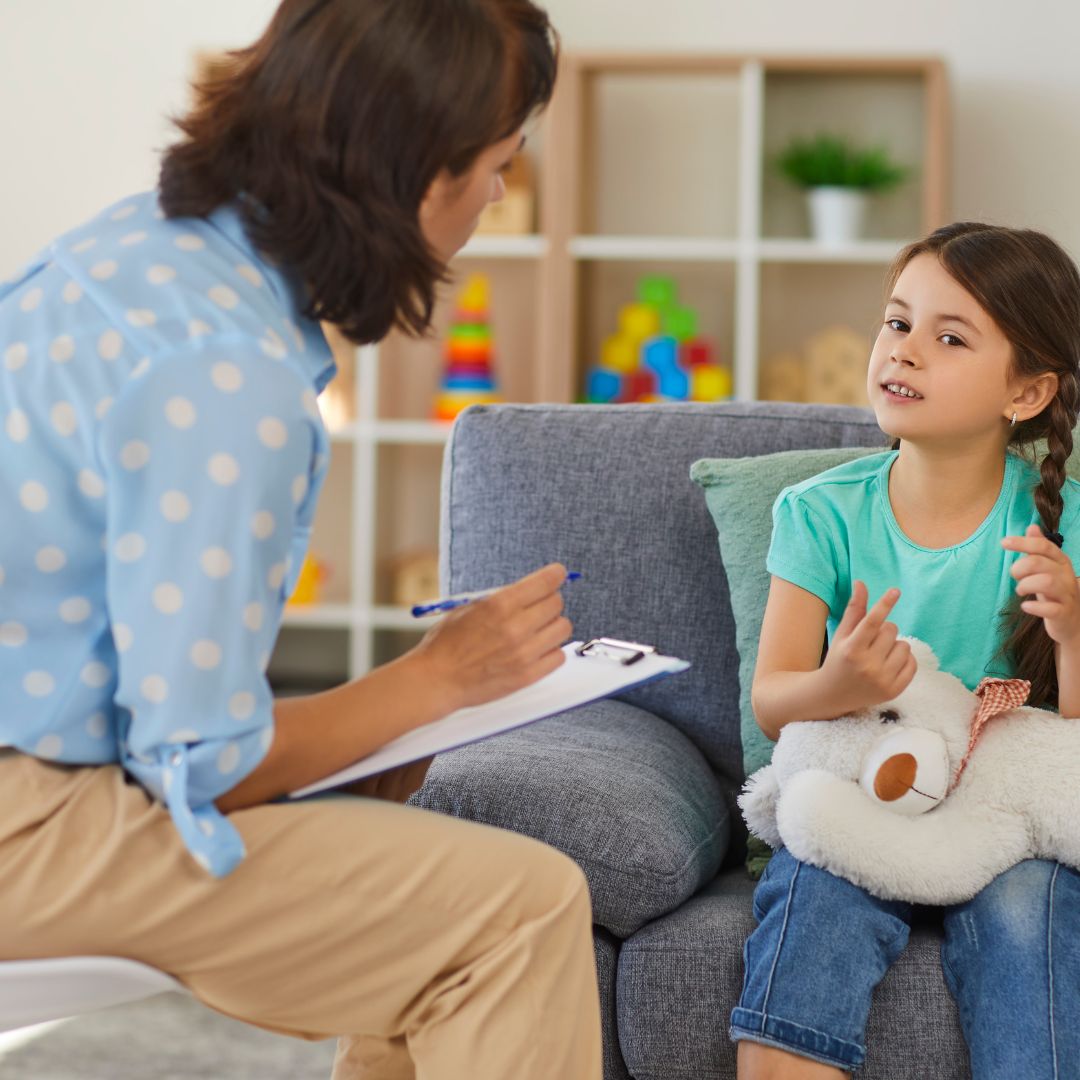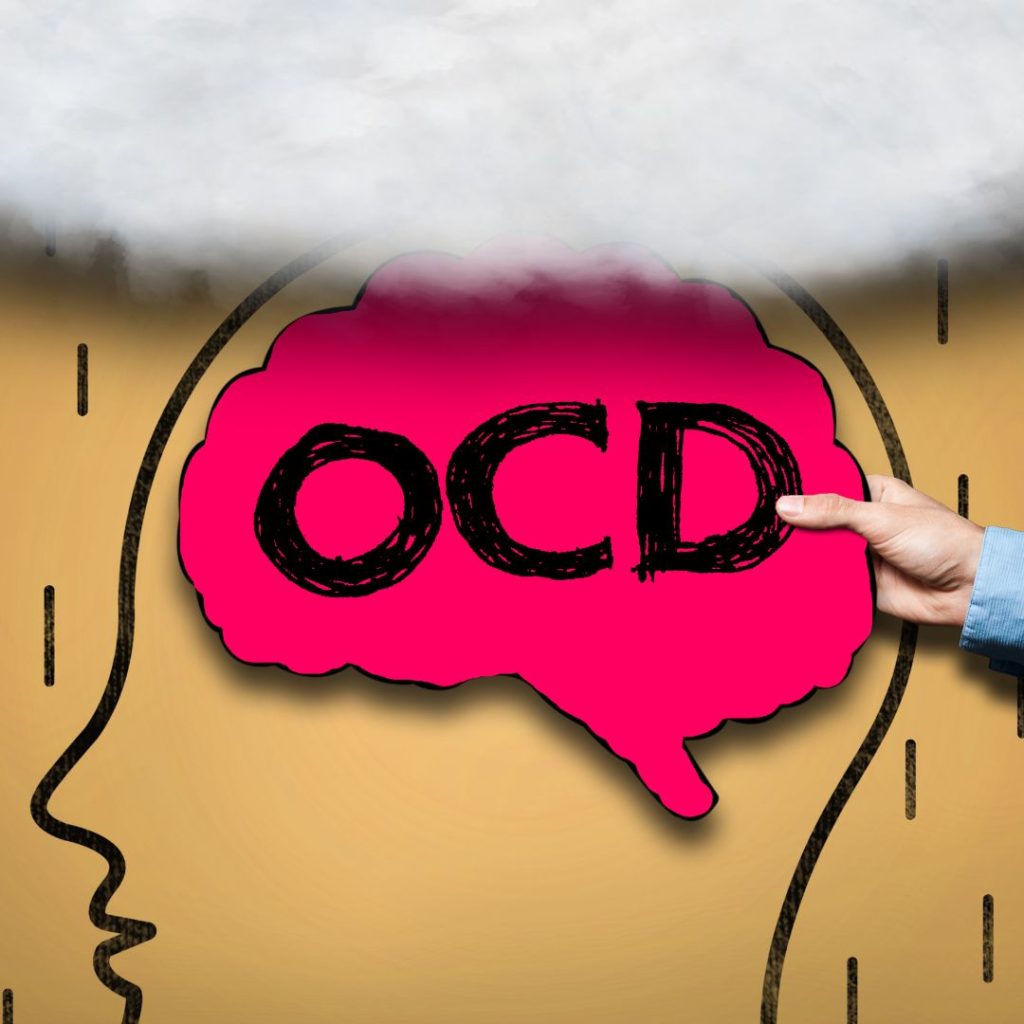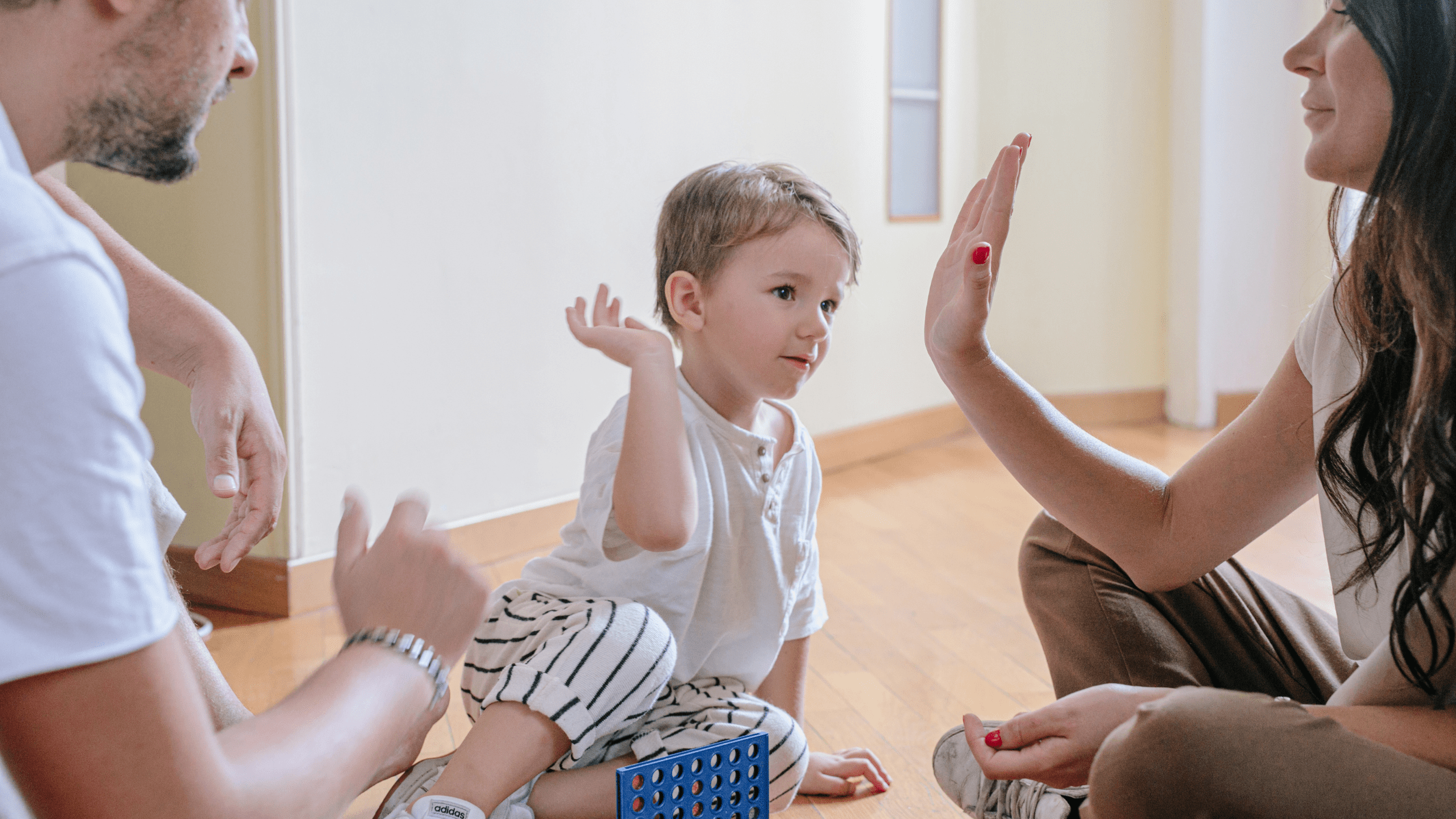Navigating parenthood comes with its set of challenges and triumphs. From ensuring our little ones are safe, and providing them with the tools they need to thrive, to fostering a nurturing environment that celebrates their unique selves—parenthood, albeit hard, is immensely rewarding.
However, when we introduce the complexity of Obsessive-Compulsive Disorder (OCD) into the mix, we find ourselves walking through a different terrain. As parents of children with OCD, we are pushed into a continuous learning curve, driven to arm ourselves with knowledge, patience, empathy, and a profound understanding. This shift is because now, more than ever, our children are looking to us for guidance as they tackle the complexities of OCD. Every year, an estimated 1 in 200 children and teenagers in the United States are diagnosed with OCD, highlighting the critical need for specialized support and understanding. Taking the first step towards education is a must.
Here at Hello, Nanny!, we’re committed to supporting you and your children as you adapt to this change. In this blog post, we’ll explore practical tips on how to parent a child with OCD, share expert advice, and provide a community of support to help your family thrive on this journey.
Understanding OCD in Children
Parenting is the art of balancing emotions and challenges, especially when your child faces their own unique battles, such as those presented by OCD. Understanding the nuances of this condition is the first step in providing the supportive scaffolding they need to thrive, so you can effectively parent a child with OCD.
Definition and Symptoms
OCD, or Obsessive-Compulsive Disorder, is an anxiety disorder characterized by a cycle of obsessions (intrusive, unwanted thoughts, images, or urges) and compulsions (repetitive behaviors or mental acts that an individual feels driven to perform in response to an obsession). For children, this could manifest as excessive hand washing due to a fear of germs, or repeatedly checking to ensure their homework is perfect. These symptoms are not just quirks – they’re significant disruptions to the child’s daily life that go beyond typical childhood anxieties or rituals.
Prevalence and Diagnosis
It might feel like you’re alone in this, but obsessive-compulsive disorder is more common than we think. As stated before, it affects about 1 in 200 children and teenagers in the U.S. So, this condition is not just widespread but also unique in its presentation, affecting each child differently. Diagnosis involves a comprehensive evaluation by a mental health professional, who looks at the range and severity of the child’s symptoms, ensuring they are not attributable to other conditions such as other anxiety disorders. Early diagnosis is key to managing a child’s OCD symptoms effectively, making it crucial to seek help when signs first emerge.
Impact on Daily Life
The impact of OCD on a child’s life can be profound and pervasive. It’s not just about the time consumed by their rituals; it’s the anxiety, disruption, and sometimes even the isolation these compulsions and obsessions can lead to. Schoolwork can suffer, friendships can become strained, and family life can be deeply affected as routines are disrupted by the need to cater to compulsions or manage distress. Understanding this impact highlights the importance of supportive interventions that address not only the symptoms but also the child’s ability to function and grow.
Building a Supportive Environment
We all understand that knowledge is power, but equally, the love and the environment we create for our children can be just as transformative. An environment where empathy blooms and understanding grows can turn challenges into stepping stones. Here’s how we can cultivate such an environment for children with OCD.
Open Communication
Initiating open and honest conversations with your child about their OCD can affirm their feelings and encourage them to share their experiences without fear of judgment. Research emphasizes the power of communication as a therapeutic tool as Cognitive-Behavioral Therapy (CBT), significantly reducing the sense of isolation that children with OCD often feel. Start by gently asking questions about their thoughts and feelings, and listen attentively. This approach not only helps in validating their experiences but also in making them feel seen and understood. Children who feel supported in discussing their OCD symptoms are more likely to engage in treatment and show improvement.
Creating a Safe Space
Creating a safe physical and emotional space at home for children with OCD involves more than a clean and organized environment. It’s about fostering a sanctuary where they can escape the pressures of their compulsions and obsessions. Clarity, routine, and predictability can help minimize stress, making it easier for them to cope with their symptoms. Studies point to the effectiveness of a structured and understanding home environment in reducing the severity of OCD symptoms, as it minimizes potential triggers and provides a stable foundation for recovery.
Educating Yourself

Just as you’d gear up with knowledge and resources before a big trip, knowing how to parent a child with OCD requires preparation and understanding. A little bit of research and seeking out professionals can turn overwhelming challenges into manageable steps. Here’s how you can become well-armed with information and strategies to support your child effectively.
Researching OCD
The first step in becoming an advocate for your child is to understand the terrain of OCD. Diving into reputable sources, such as the International OCD Foundation, the Child Mind Institute, or academic journals, allows you to grasp the complexity of the disorder and the latest research findings. Knowledge about OCD’s biological underpinnings, psychological aspects, and social implications will enable you to empathize with your child’s experience more deeply. Remember, informed parents are empowered to ask the right questions and make decisions that align with evidence-based practices.
Seeking Professional Guidance
No one should have to walk this path alone, and thankfully, you don’t have to. Similar to other psychiatric disorders, seeking professional guidance from a child psychologist, child psychiatrist, or specialized OCD therapist can provide the support your child needs. These professionals can offer a tailored approach to treatment, ensure a correct diagnosis, and help set realistic expectations for you or other family members. Studies highlight that parents actively participating in their child’s therapy sessions can significantly enhance the treatment’s effectiveness, strengthening the coping mechanisms within the family unit.
If you’re feeling overwhelmed or need an extra pair of hands, working with a professional nanny who specializes in caring for children with OCD can be a great step forward. Plus, with a long-term, full-time nanny, your kids will enjoy seeing a familiar face, bringing consistency and comfort into their daily routines. Hello, Nanny is the nanny placement agency dedicated to helping you find qualified and specialized nannies, ensuring your child receives the best care possible.
Learn More About How Hello, Nanny! Can Support Your Family’s Needs
Staying Informed about Treatment Options
The landscape of OCD treatment is continuously evolving, with new therapies and medications emerging. Staying informed about these options, including Exposure and Response Prevention (ERP) therapy, Cognitive Behavioral Therapy (CBT), and medication such as selective serotonin reuptake inhibitors, can empower you to advocate for your child’s needs. Research indicates that a combination of therapy such as response prevention therapy and medication often yields the best outcomes for those with OCD. Keeping abreast of the latest studies and treatment modalities through trusted medical journals or collaborations with your child’s healthcare provider ensures that you can make informed decisions about their care.
Establishing Routines
Life with OCD can often feel like steering through a storm without a compass, making predictability and routine your guiding stars. Establishing routines adds a layer of security and control, crucial for a child with OCD.
Importance of Predictability
Predictability isn’t just about comfort; it’s a science-backed strategy that helps reduce anxiety and manage OCD symptoms. A structured environment can signal safety to the brain, by turning down the volume on the constant alarm bells rung by OCD. Predictable routines can significantly lessen the stress and anxiety associated with uncertainty, providing a much-needed sense of control and stability for children with OCD.
Creating a Consistent Schedule
Developing a consistent daily schedule is similar to building a scaffold around which your school-aged children can construct their day, giving shape and form to what might otherwise feel like an overwhelming expanse of time. This schedule should include regular times for meals, homework, leisure, and sleep, tailored to fit your child’s unique needs and therapeutic sessions.
Balancing Flexibility and Structure
While structure is key, rigidity can be counterproductive, making it essential to find a balance between predictability and the ability to adapt. It’s vital to integrate some flexibility within the routines to help children learn to cope with change in a controlled manner. A balance of structure and flexibility in daily routines can enhance the resilience of children with OCD, enabling them to handle unexpected changes more effectively without spiraling into compulsive behaviors.
Encouraging Independence
As we’ve covered through the structured world of routines and predictability, it’s pivotal to remember that grooming a child to thrive isn’t just about the external scaffolding we provide. True empowerment stems from fostering independence, enabling them to stand tall even among the whirlwind of OCD.
Age-Appropriate Responsibilities
Instilling a sense of responsibility in a child with OCD can be a fine line to walk. However, assigning age-appropriate chores and tasks is a step towards normalcy and independence. Studies suggest that kids, even younger children, who are given responsibilities suited to their developmental stage show improvement in executive functioning and a reduced tendency towards anxiety-driven behaviors. Such tasks not only contribute to a child’s sense of belonging and usefulness within the family but also empower them to understand that they’re capable of influencing their environment positively, despite OCD.
Fostering Self-Esteem
A child grappling with OCD may often feel less capable or different from their peers, chipping away at their self-esteem. Positive reinforcement and celebrating small victories can significantly boost a child’s self-worth. By focusing on their strengths, encouraging hobbies, and facilitating peer interactions where they feel accepted and valued, we can nurture a strong sense of self that transcends their challenges with OCD.
Empowering the Child to Manage Their Condition
Ultimately, the goal is to equip the child with the tools they need to manage their OCD independently. This doesn’t entail handing them the reins before they’re ready but involves gradually introducing them to techniques and coping strategies that they can apply on their own. Research underlines the effectiveness of teaching children mindfulness and stress-reduction techniques, enabling them to recognize the onset of compulsive behaviors and apply learned strategies to counteract them. This empowerment fosters resilience, giving the child confidence in their ability to control their OCD symptoms, rather than being controlled by them.
Nurturing Relationships
Strengthening the circle around a child with OCD goes beyond the boundaries of their immediate family. It’s about enriching their entire ecosystem of relationships. This mix of connections—be it with siblings, peers, or school staff—plays a critical role in their development and management of OCD.
Sibling Dynamics
We all know that sibling relationships can be tricky, especially when one child has OCD. It’s essential to foster an environment of empathy and understanding among siblings, ensuring they see beyond the disorder to the sibling they know and love. Siblings who are informed and involved in their brother’s or sister’s care process tend to develop a stronger, more supportive relationship. This involvement not only enhances the bond between them but also contributes positively to the affected child’s coping mechanisms by providing a constant, comforting presence that is grounded in mutual respect and understanding.
Socializing with Peers
Social interactions play a pivotal role in any child’s life; they are even more critical for a child with OCD. Facilitating positive peer relationships can help counter feelings of isolation and difference. According to a study, peer support groups and structured social skills training can dramatically improve social competence and reduce social anxiety. Encouraging participation in group activities that align with their interests can also serve as a bridge to natural friendships, providing a supportive social network that appreciates them for who they are, beyond their OCD.
Addressing Challenges
Stigma, unfortunately, is a roadblock many families encounter. It can originate anywhere from misconceptions in the community to the media’s portrayal of OCD. Thankfully, educational programs aimed at demystifying OCD can significantly reduce social stigma. By openly sharing accurate information about OCD, emphasizing the disorder’s neurobiological basis, and showcasing success stories of individuals living with OCD, communities can foster a more inclusive and supportive environment.
Also, difficult situations, particularly in social settings or during times of stress, can exacerbate a child’s OCD symptoms. Here, tailored coping strategies such as exposure and response prevention therapy (ERP) can be pivotal. ERP involves gradually exposing the child to their fear or anxiety in a controlled setting, thereby reducing their sensitivity over time. Parents and caregivers can collaborate with therapists to develop and reinforce these strategies, ensuring the child feels supported and understood.
Summary: The Best Tips On How To Parent a Child With OCD
Maneuvering the complexities of OCD in childhood requires a village, one equipped with patience, knowledge, and a generous dose of compassion. From fostering independence and self-esteem to cultivating vibrant community connections, each step taken is a building block towards resilience. By focusing on empowering the child, nurturing relationships, and addressing challenges head-on, families can create an environment where a child with OCD doesn’t just survive but thrives. It’s about painting a picture of possibility, where every child sees beyond their disorder and recognizes their potential to lead a fulfilling life. Together, we can turn the tide against stigma and help these young minds shine in their unique brilliance.
Explore the life-changing benefits of teaming up with us at Hello, Nanny! to find a nanny skilled in caring for kids with OCD. Our experienced nannies not only provide personalized care but also integrate seamlessly into your approach to managing OCD, enhancing your child’s path to resilience and independence.
Learn More About How Hello, Nanny! Can Support Your Family’s Needs



